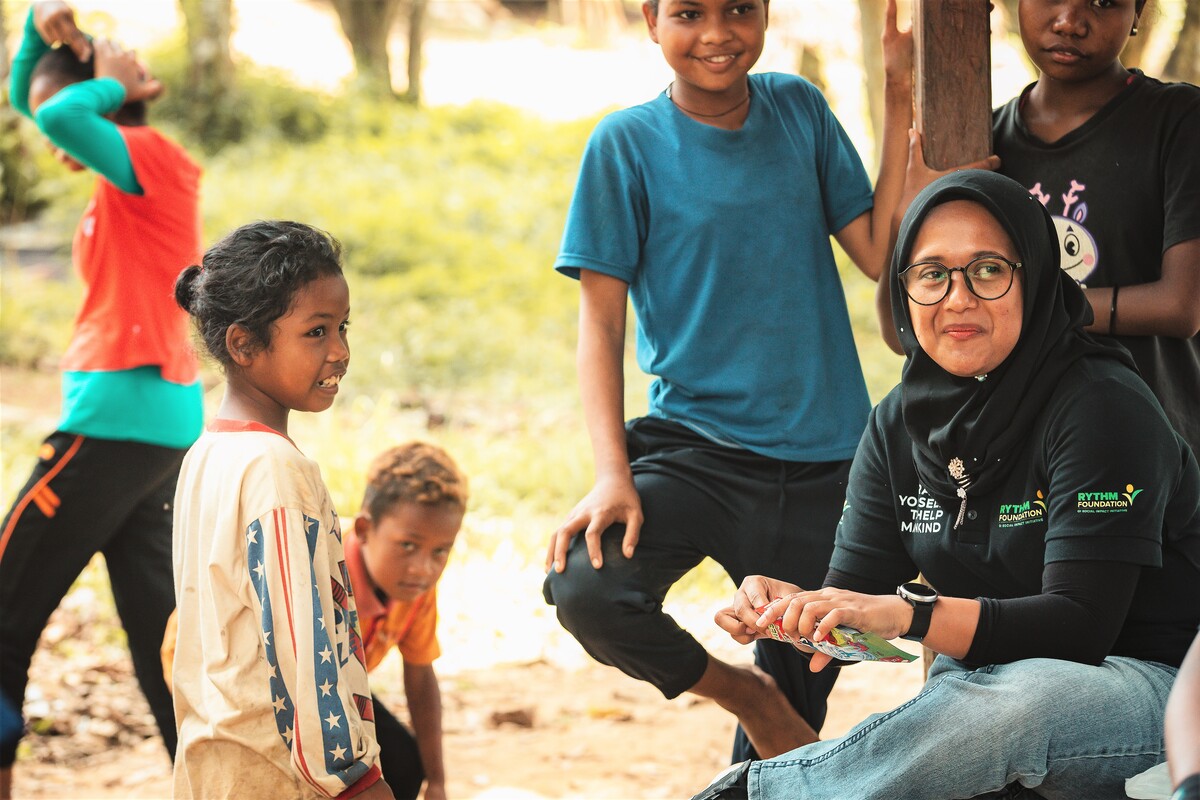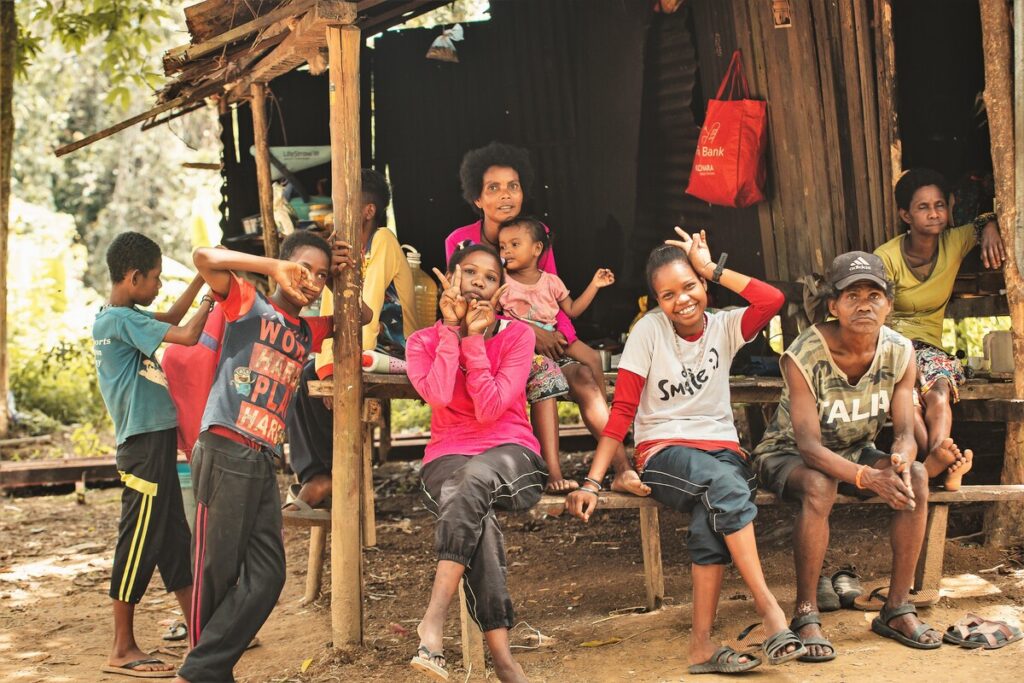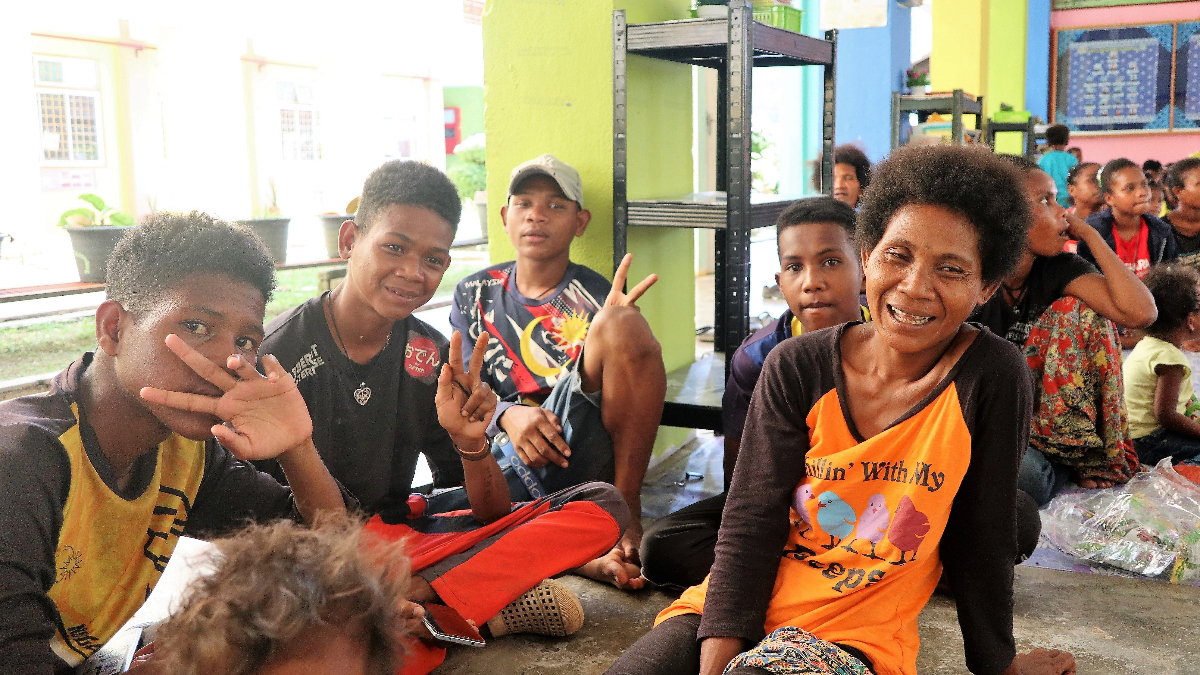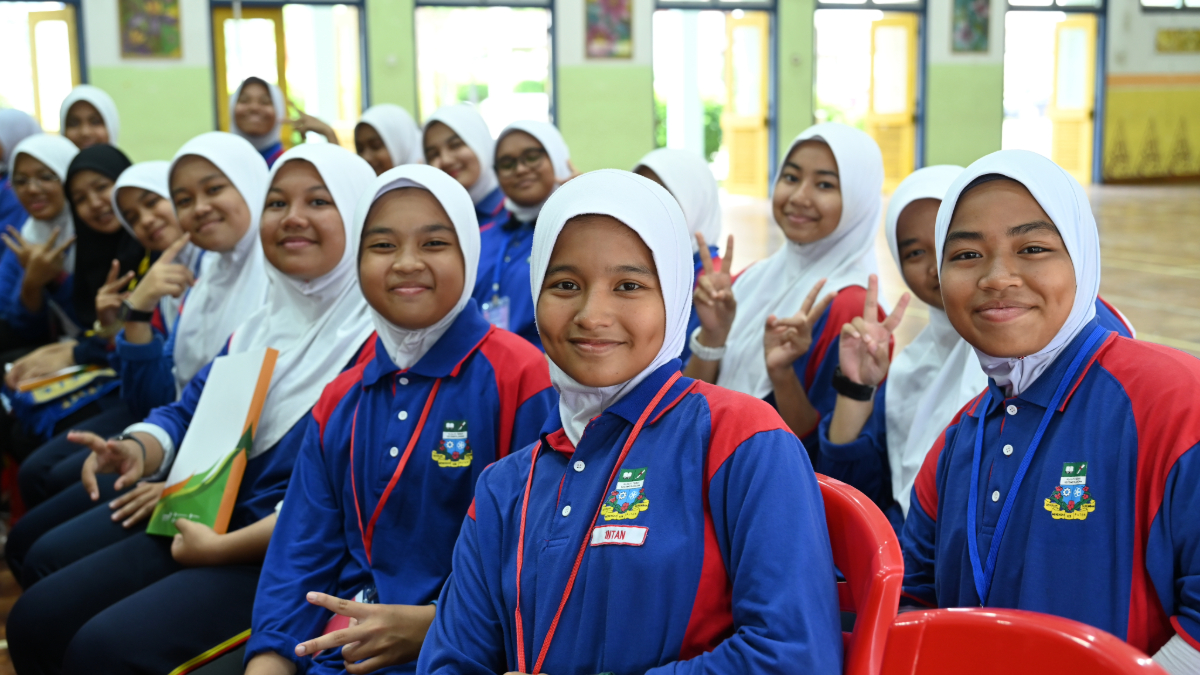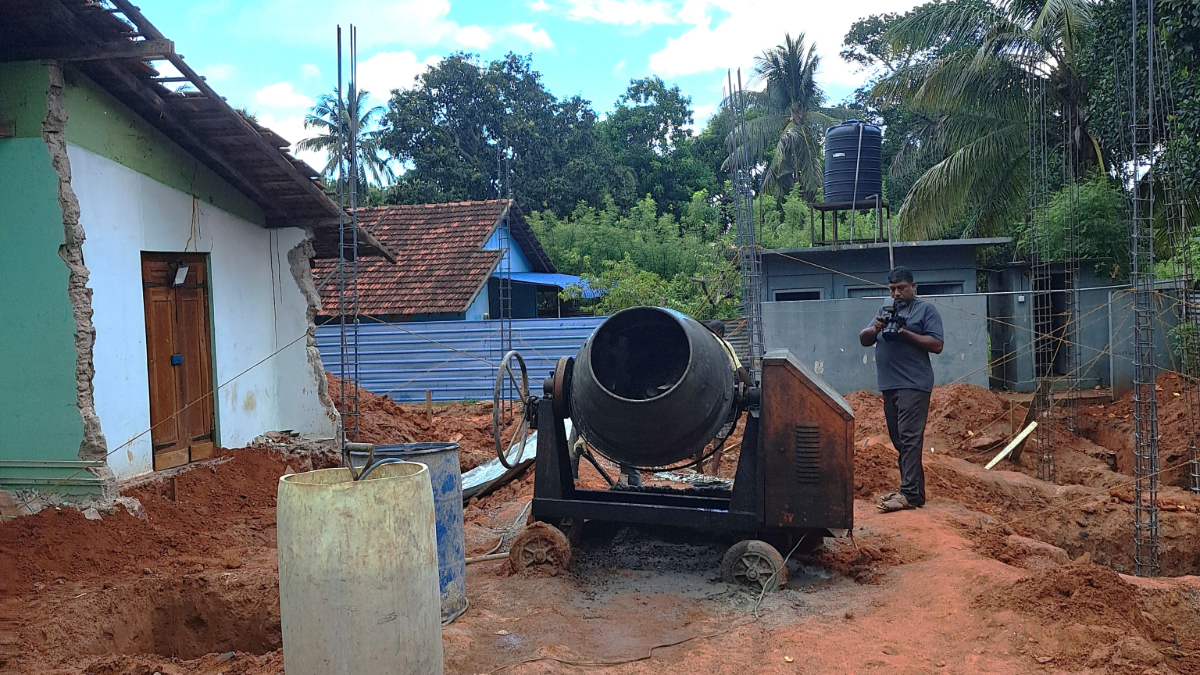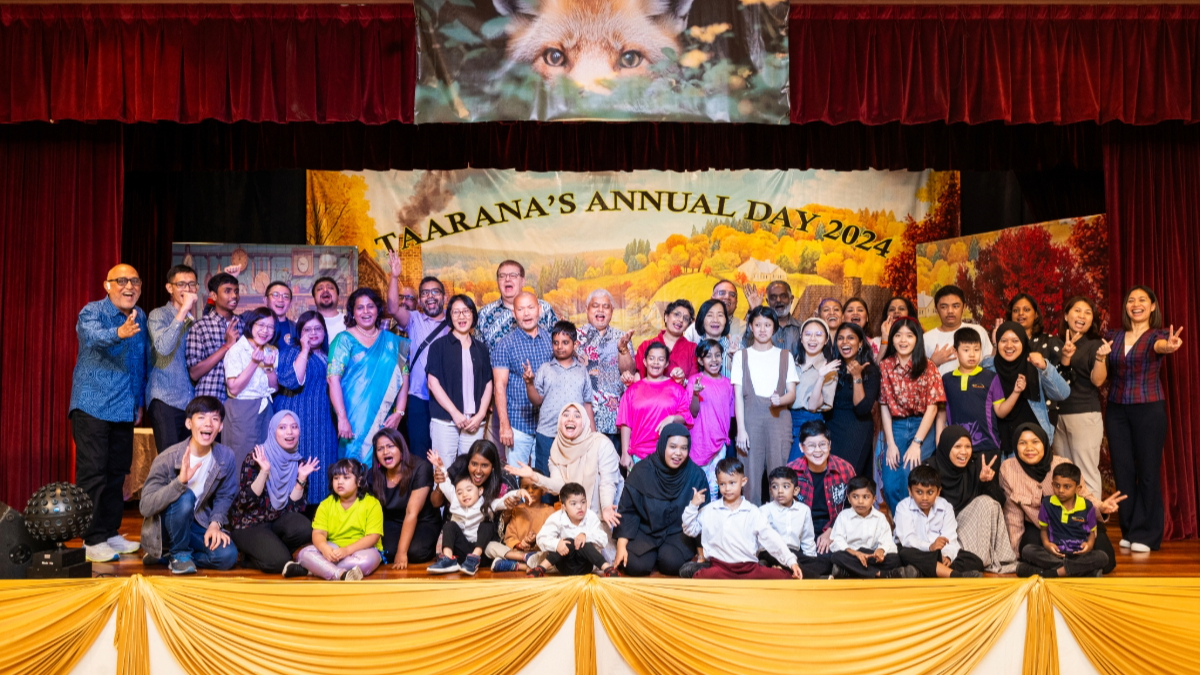Attun (not her real name) is a member of the indigenous Orang Asli Bateq community in the state of Pahang in Malaysia. She doesn’t know her age, although she looks to be in her 30s. She has never had a birth certificate or any other document to prove her existence. She has never been to school, either, and lives in relative poverty with her family in Kampung Kuala Atok, a small, remote village deep in the Taman Negara National Park.
“I have never left my village. This forest has been my world,” the shy mother of three said.
Attun’s world is, however, on the brink of a profound transformation. She, her family, and fellow villagers now stand at the threshold of a promising future and are one step away from finally being officially registered in the government database.
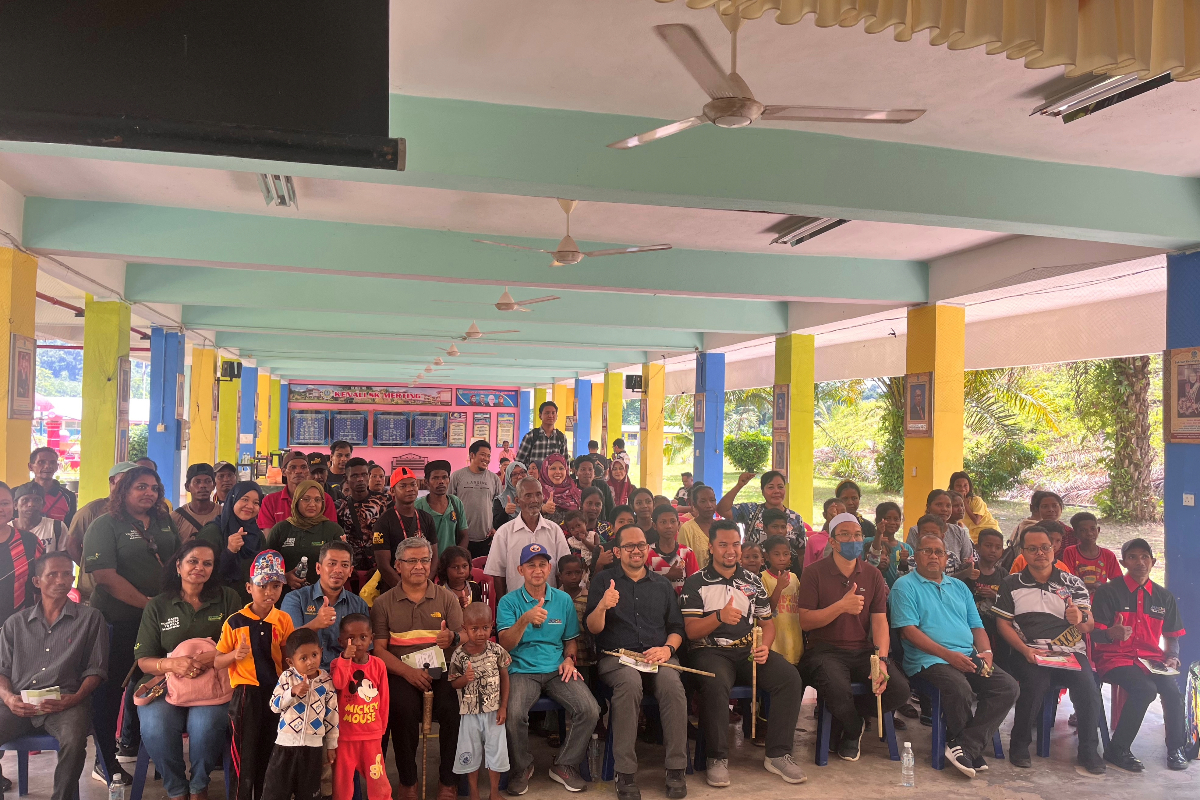
between RYTHM, our partners, and local authorities
Last month, Attun and some 80 villagers, including children, joined several other Orang Asli communities in a documentation registration drive at a school in the small town of Jerantut.
This turning point is a result of months of efforts and coordination actions between RYTHM Foundation, our partners, and local authorities to enable the essentially stateless communities to finally gain recognition as Malaysian citizens.
RYTHM worked closely with the Department of Orang Asli Development (JAKOA) and the National Registration Department (NRD) to include our adopted community in the drive – making it the most substantial outcome to date of our Community Adoption Programme (CAP) in Kampung Kuala Atok.
Last June, RYTHM set up a makeshift school in the village called ‘Sekulah Bateq’ to provide the community’s children with basic literacy and numeracy classes. The progress achieved by the children was so remarkable that 29 of them successfully transitioned to a mainstream school within less than a year.
Read more: Malaysia’s Bateq Tribe Children Make History at Mainstream School
Documenting Change and Empowerment
The eagerly awaited documents will not only provide the community with the recognition they rightfully deserve but also improve their access to education, healthcare, employment, and other vital services that have eluded them for generations.
“This is the most significant impact of our initiative in Kampung Kuala Atok so far. The villagers finally feel like they are a part of Malaysia,” the Head of RYTHM, Santhi Periasamy, said.
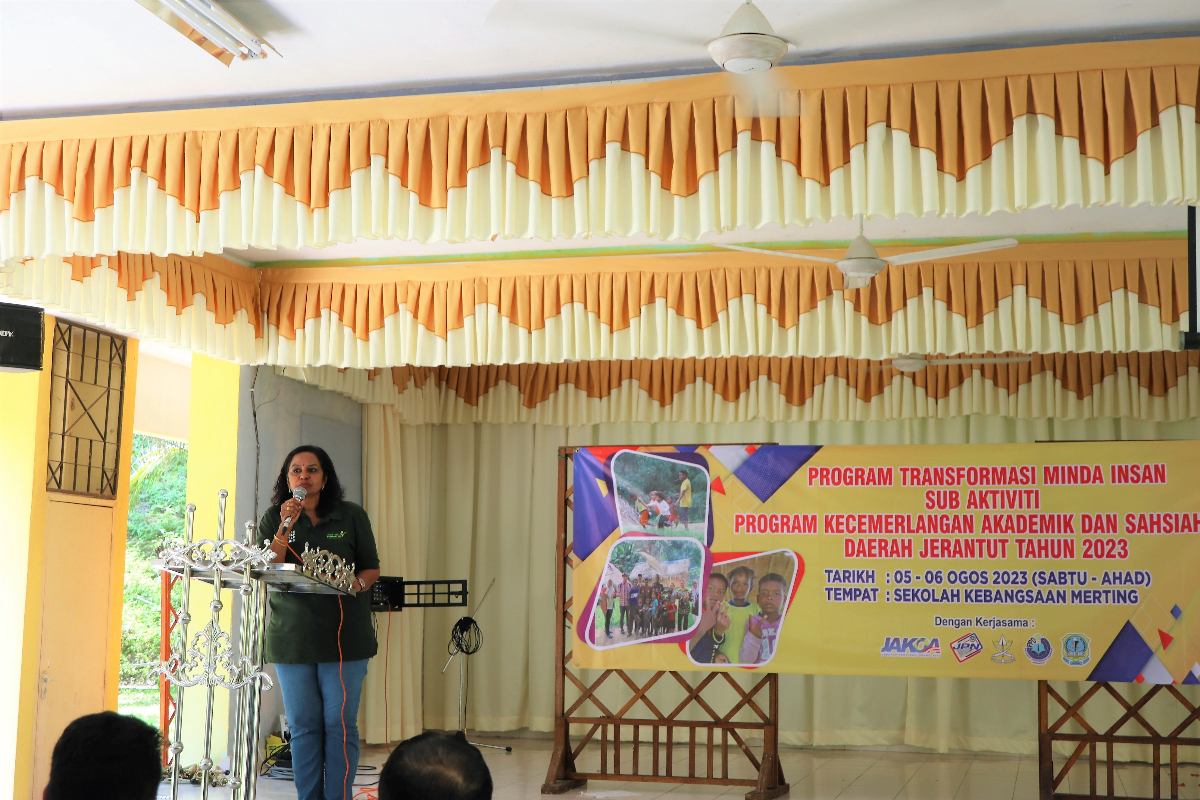
This triumph also underscores RYTHM’s commitment to fostering real change for the marginalised. Santhi emphasised that our mission extends beyond providing immediate or short-term aid.
“It is about empowering communities to become self-sufficient, resilient, and integrated into society. Our journey with the Bateq community exemplifies our belief in sustainable impact, where education and rightful access to education, healthcare, and employment become a bridge to a brighter future.”
The progress was also a matter of great pride for the head of the village, Husin Dayak. “This is a historic moment for our community,” he said. “Our existence has gone unrecognised for too long, and we have lived in the shadows of uncertainty.
“But now, with the help of RYTHM Foundation, JAKOA, and the National Registration Department, we are finally strengthening our identities. This is more than just a document. It is the key to our rightful place in Malaysia.
“The registration drive means more of our children can attend school; it means that we can access healthcare and our youth can get jobs. Most importantly, it means we are no longer invisible.”
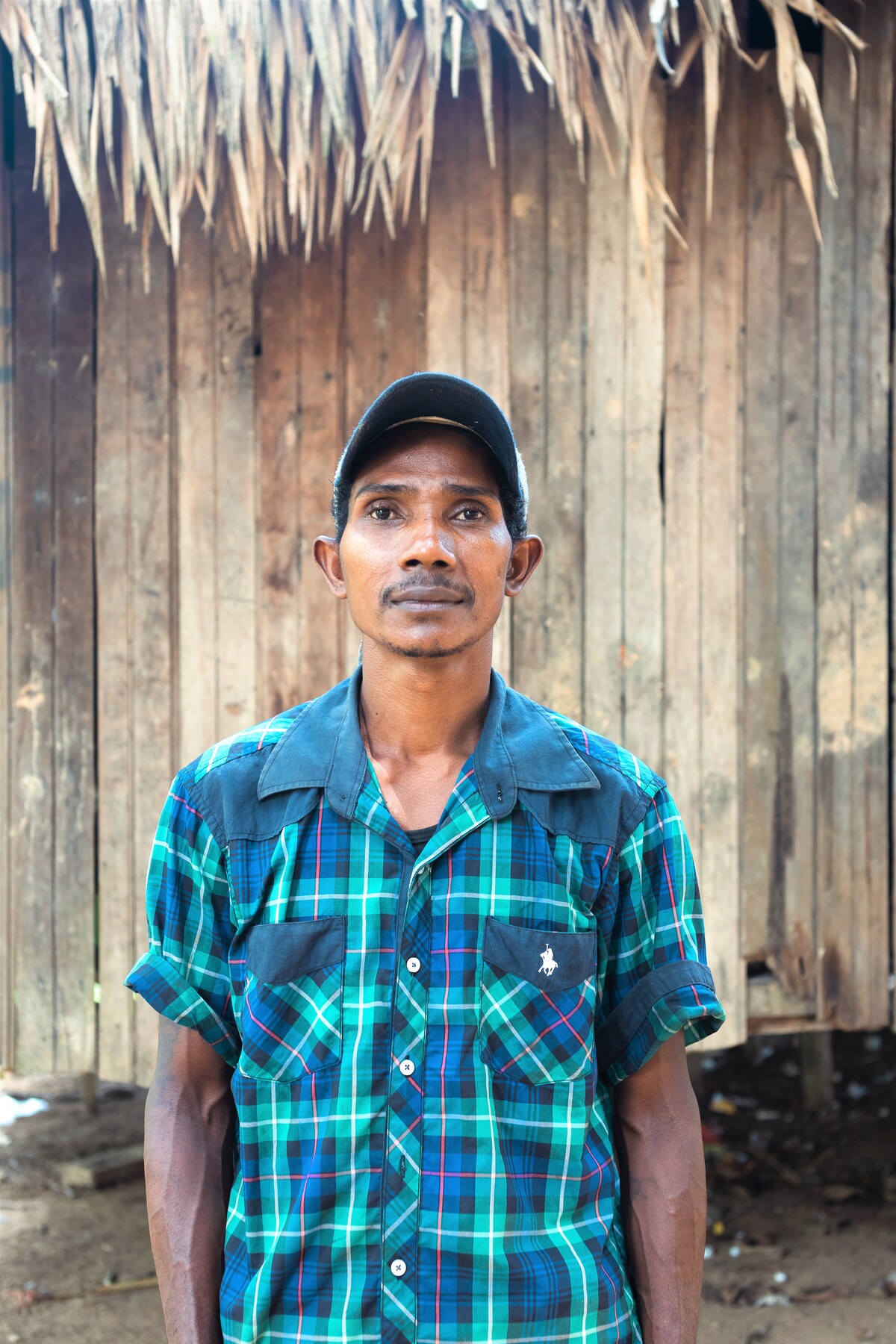
Resolutions for Change
Our pivotal role in the registration exercise is partly attributable to the recent ‘Indigenous Communities in Malaysia: Reframing the National Sustainability Initiative’ Convention hosted by RYTHM and Universiti Kebangsaan Malaysia (UKM).
The historic conference in June adopted over 30 resolutions to address the indigenous communities’ profound and longstanding challenges in education, healthcare, livelihoods, and statelessness.
The collective efforts of the diverse stakeholders sought to pave the way for a brighter future for these communities, one where they could thrive, contribute, and be recognised as valuable members of Malaysia’s rich tapestry.
Also read: Landmark Convention Takes Action to Safeguard Malaysia’s Indigenous Communities
